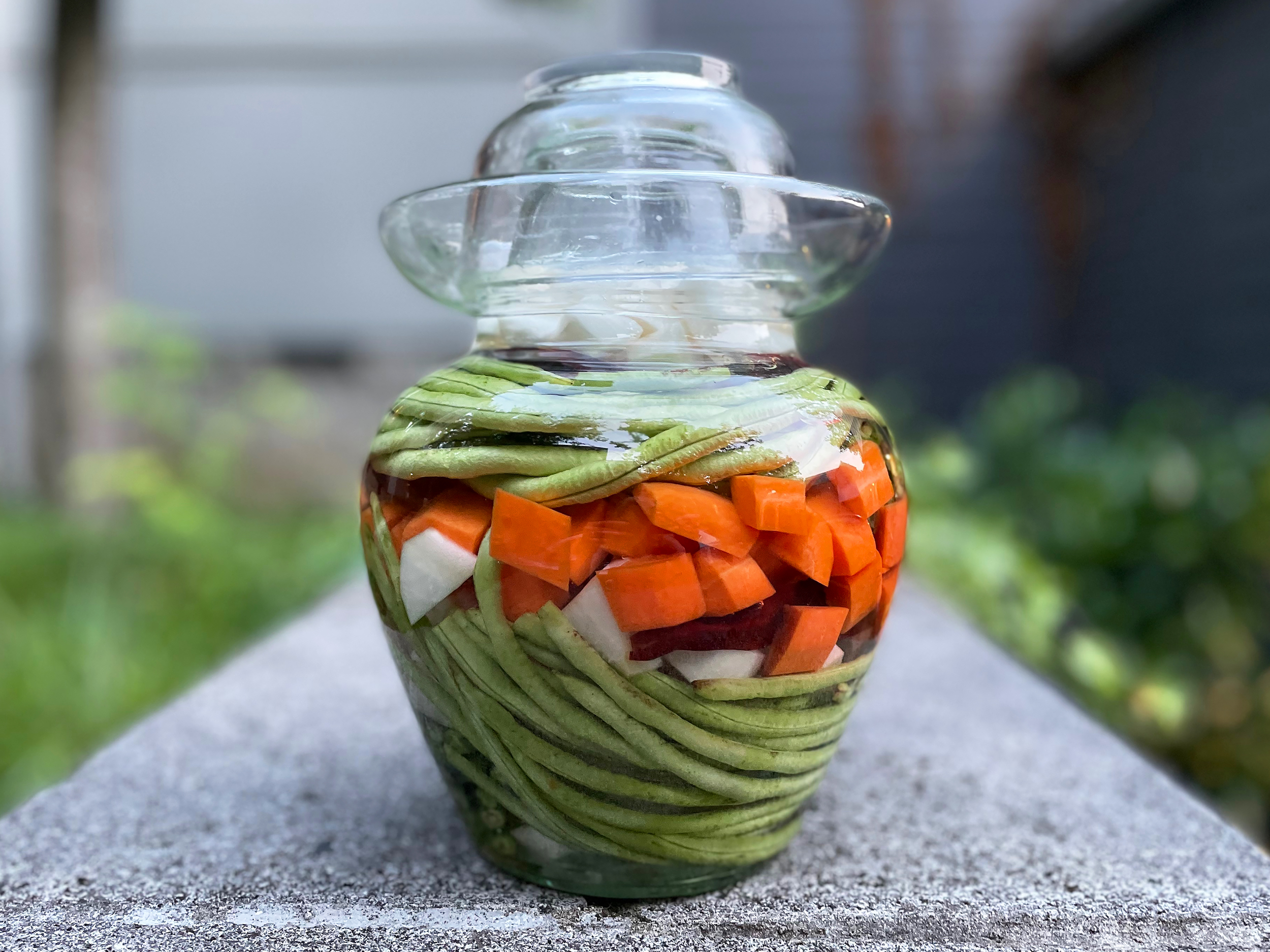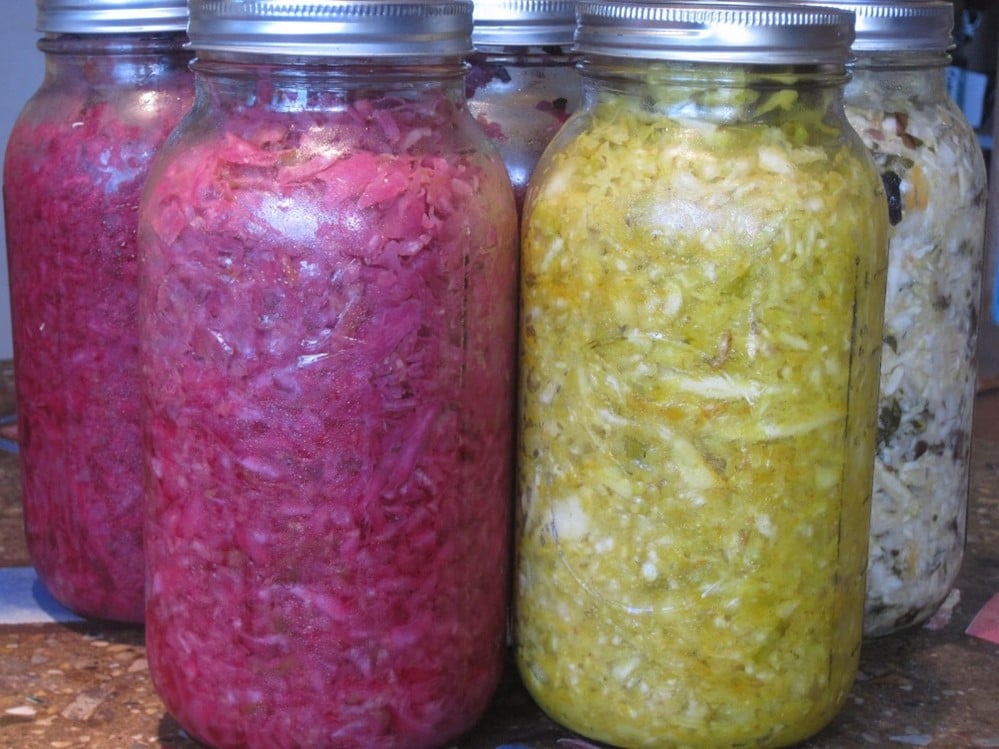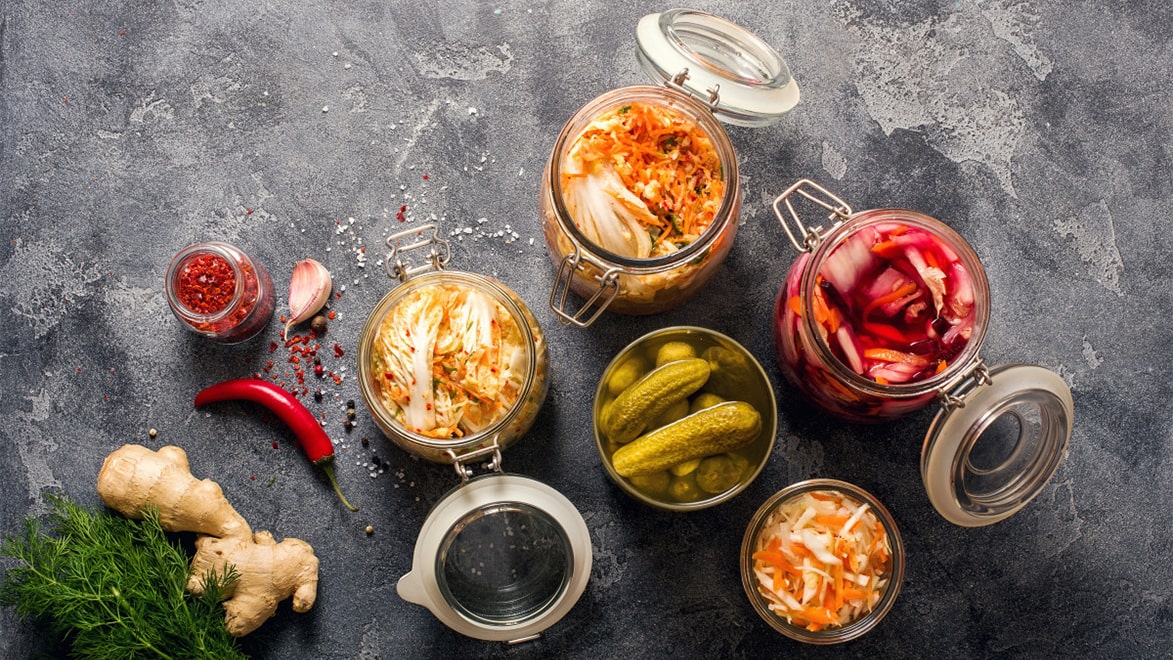When it comes to fermented foods, proper storage is crucial to maintain their quality, flavor, and nutritional benefits. Whether you’ve made your own sauerkraut, kimchi, or kombucha, or purchased these nutritious items, understanding the best storage practices is essential for preserving their goodness. In this article, we’ll explore the various methods and tips for storing fermented foods to extend their shelf life and keep them safe for consumption.

Credit: blog.themalamarket.com

Credit: www.umassmed.edu
The Basics of Fermented Foods Storage
Fermented foods undergo a process where natural bacteria feed on the sugars and starches in the food, creating beneficial enzymes, b-vitamins, omega-3 fatty acids, and various strains of probiotics. This transformation not only enhances the food’s nutritional profile but also introduces live cultures that contribute to gut health. To ensure that these live cultures remain active and the flavors of fermented foods are well-preserved, proper storage is essential.
Best Practices For Storing Fermented Foods
Here are some best practices to consider when storing fermented foods:
- Temperature Control: Store fermented foods in a cool environment to slow down the fermentation process. A temperature range of 32-50°F (0-10°C) is ideal for most fermented foods.
- Airtight Containers: Use airtight containers to prevent exposure to air, which can cause spoilage and unwanted flavors. Glass jars with tight-fitting lids are excellent for storing fermented foods.
- Keep Out of Direct Sunlight: Protect fermented foods from direct sunlight, as UV rays can degrade the quality of the food and accelerate the breakdown of nutrients.
- Fermentation-Safe Lids: If you’re fermenting in jars, consider using specialized fermentation lids, which allow gases to escape without letting air in.
- Refrigeration: In most cases, refrigeration is the best way to store fermented foods for long-term use. It slows down the fermentation process and helps maintain the food’s quality.
Specific Guidelines For Different Fermented Foods
For various types of fermented foods, there are specific guidelines to follow when it comes to storage:
| Fermented Food | Storage Method |
|---|---|
| Sauerkraut | In glass jars, tightly sealed, in the refrigerator, away from light and moisture. |
| Kimchi | Refrigerated in a sealed container. Check the container’s tightness to ensure prolonged freshness. |
| Kombucha | Stored in the refrigerator, sealed, and away from other pungent foods to prevent flavor transfer. |
| Miso | Kept in an airtight container in the refrigerator to maintain its flavor and beneficial bacteria. |
| Yogurt | In the fridge to maintain its consistency and keep the live cultures active. |
Tips For Prolonging Shelf Life
Follow these tips to prolong the shelf life of your fermented foods:
- Labeling: Properly label your containers with the date of preparation to keep track of freshness.
- Avoid Cross-Contamination: Store different fermented foods separately to avoid cross-contamination of flavors and to preserve their individual qualities.
- Regular Checking: Check your fermented foods regularly for any signs of spoilage, mold, or off-odors, and discard if any issues arise.
- Use Clean Utensils: Always use clean utensils when removing fermented foods from their containers to prevent introducing harmful bacteria.
- Rotate Stock: When storing multiple batches, be sure to rotate stock, using older batches first to maintain freshness.
The Impact Of Proper Storage
Proper storage of fermented foods ensures that they remain safe for consumption and retain their beneficial probiotics and enzymes. By following the recommended storage practices and guidelines, you can extend the shelf life of your homemade or store-bought fermented foods while preserving their nutritional integrity and delicious flavors.
Frequently Asked Questions Of How To Properly Store Fermented Foods: Essential Tips For Long-lasting Flavors
How To Properly Store Fermented Foods?
To properly store fermented foods, ensure they are sealed in airtight containers and kept in a cool, dark place.
Can Fermented Foods Be Stored At Room Temperature?
Yes, fermented foods can be stored at room temperature, as long as they are properly sealed and stored in a cool, dark place.
Are There Any Health Risks Associated With Storing Fermented Foods?
Properly stored fermented foods pose no health risks. However, if they are not stored correctly, they can become contaminated and cause illness.
How Long Can Fermented Foods Be Stored?
Fermented foods can be stored for several weeks to several months, depending on the specific food and the storage conditions.
Conclusion
Storing fermented foods is essential to maintain their quality, taste, and nutritional benefits. By controlling the temperature, using airtight containers, and following specific guidelines for each type of fermented food, you can prolong the shelf life of these probiotic-rich items. Regular checks, proper labeling, and avoiding cross-contamination further contribute to preserving the integrity of fermented foods. Following these storage practices allows you to enjoy the myriad health benefits and delicious flavors of fermented foods for an extended period.
